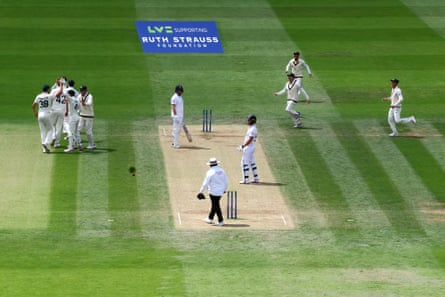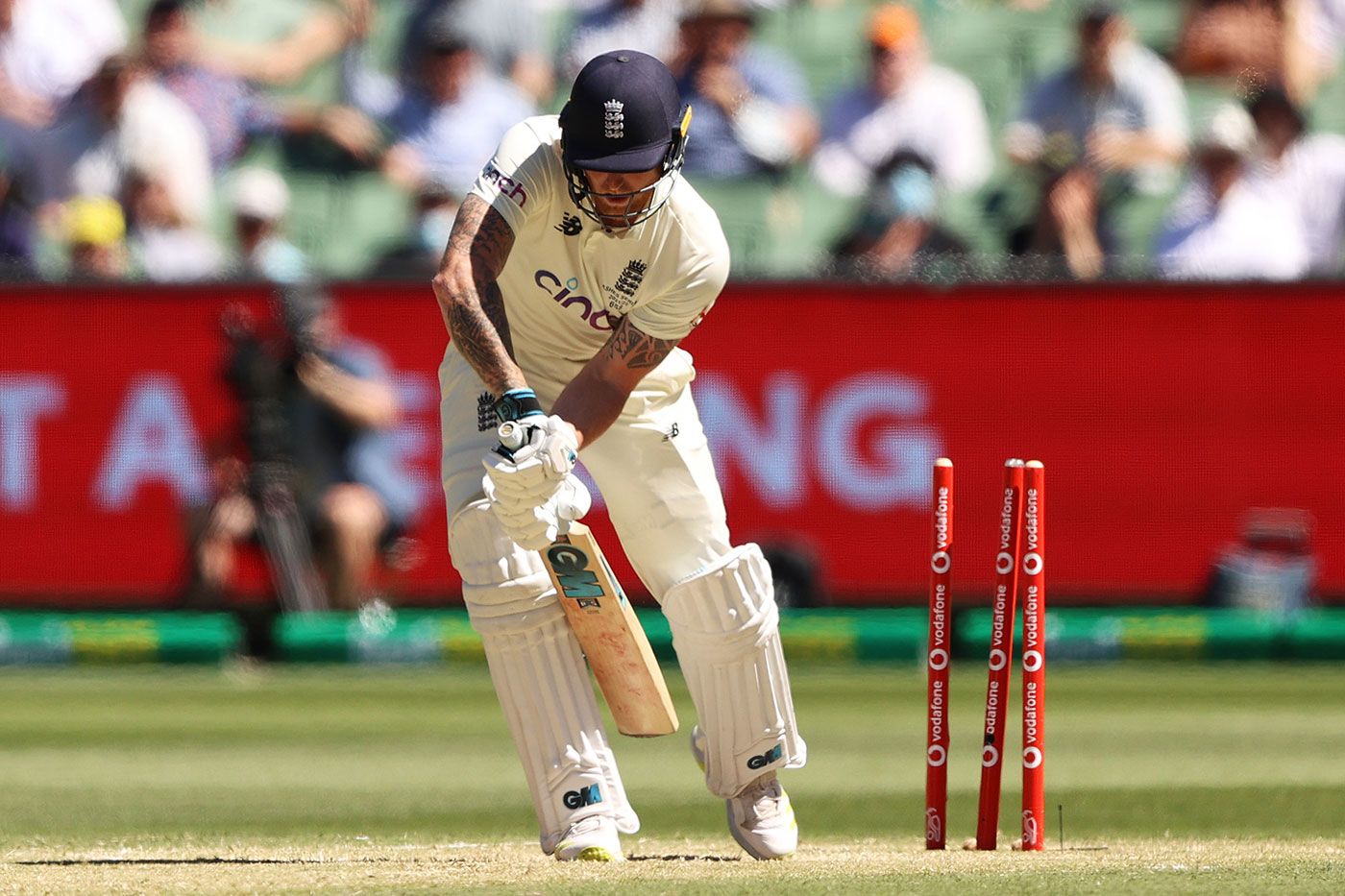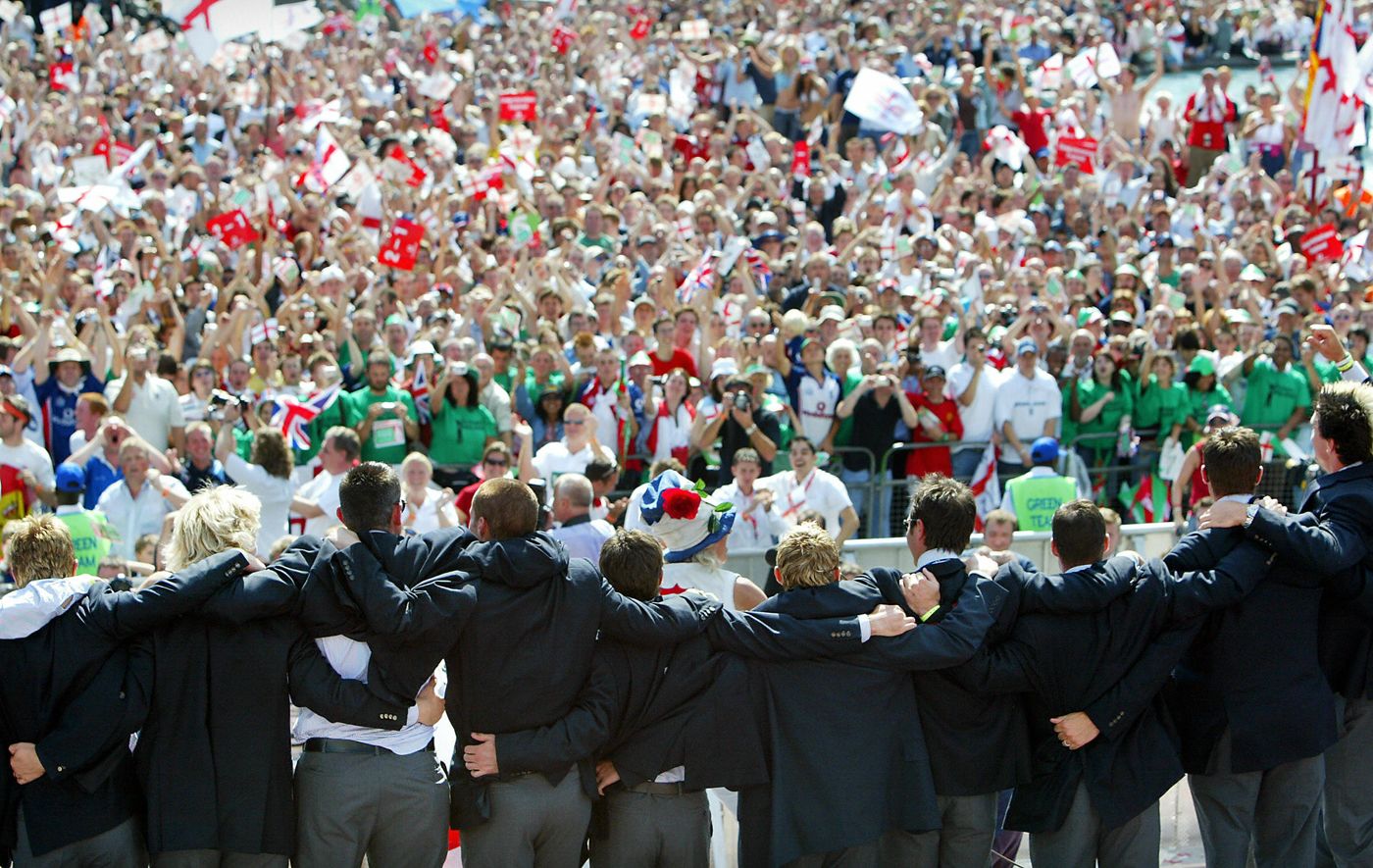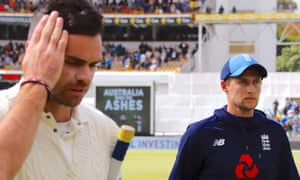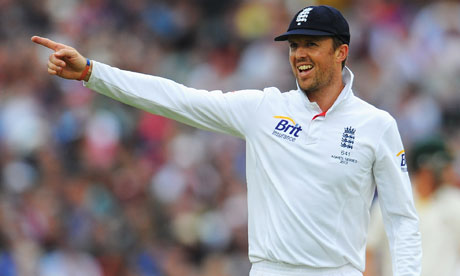Maxie Allen in The Full Toss
England would not have won the Ashes had Kevin Pietersen not been sacked without explanation. Alastair Cook is the greatest captain in test history. Paul Downton is a national hero of rare prescience and foresight.
Why does it matter? At the risk of coming over all Ed Smith, allow me to quote George Orwell:
He who controls the past controls the future. He who controls the present controls the past.
Newspapers write contemporary history. They set the agenda and become the accepted version of events. The press influence people whose opinions affect cricket followers – from the wider public, to politicians, sponsors, and sports administrators.
The hacks have power, but some of them are distorting reality to serve a bizarre agenda.
Let’s get one thing straight. England did not win the Ashes because a masterplan came gloriously to fruition. England’s triumph over Australia did not reveal the decision-making of February 2014 to be an act of visionary, methodical genius.
England won despite what happened, not because of it.
Let’s remember the precise sequence of events. First, Peter Moores was hired with a mandate to re-build the England side. He was chosen even though he was the only candidate who’d already failed in the role, and to almost universal opposition. He promised more of the same micro-managing, data-driven, strait-jacket approach which by then had already been discredited under Andy Flower.
How did he get on? Moores took England backwards, not forwards: losing to Sri Lanka, crashing out of the World Cup at the group stage, and drawing with West Indies, a record only offset by the series win over a woeful India.
It was meant to have been Peter Moores who masterminded England’s Ashes campaign. At the last minute the ECB had no choice but bow to the inevitable, prompting a panicked sacking and replacement process. In dismissing Moores, Andrew Strauss managed to avoid doing the really stupid thing – not sacking him – but it was hardly act of remarkably prescient cricketing genius.
And what of the new materials around whom the side was re fabricated? Sam Robson and Gary Ballance have both since been dropped, as have Chris Jordan and Liam Plunkett. Chris Woakes, for reasons both of form and injury, has also fallen off the radar. Jos Buttler has yet to make a century and has scored only 79 runs at 13 in this Ashes series.
The ECB’s stated plan, eighteen months ago, was to build the New England around Alastair Cook. Since then he has scored two centuries in seventeen tests, the output of a supporting actor, not the lead. In the 2015 Ashes so far, Cook has made 223 runs in seven innings, at 31.85. In terms of England averages for the series, he stands sixth.
Has Cook’s captaincy improved England’s form? He’s now more prepared to try quirky tactics – if England are on top. He will declare, nine down, shortly before lunch – if England are already leading by more than 300. As Unhappy Hippy remarked on Twitter, “Cook’s captaincy capably managed matches we should win”.
If Cook has changed his approach, he waited until at least a year after the tour of Australia to do it. If Cook is made of the right stuff, why has he progressed at barely a glacial pace? In nearly three years at the helm, Cook has now led England captain in 37 tests. Only five men have ever captained England on more occasions.
Would England not have beaten Australia without Cook’s captaincy? What did he do in this series which turned sessions in England’s favour? Was this a case of his intrinsic virtues carrying the day, as they were inevitably destined to? Or an extension of the Collingwood Principle – that if anyone captains long enough, refusing to resign, they will eventually enjoy a series when things go their way?
The jury remains out on the most important dimension of Cook’s captaincy. He has always been prepared to rotate the bowlers – any idiot can do that – and try an offbeat field placing. Cook’s real weakness is his impotence in the face of adversity. When the batsmen are on top – as Australia’s were at Lord’s, or when England lose control in the field – as they did last year against Sri Lanka at Headingley and India – Cook retreats into his shell instead of taking the game by the scruff of the neck. These situations are the true test of a captain’s mettle, and Cook invariably fails – shrugging his shoulders at slip and ceding control to Anderson and Broad.
By retaining Cook as captain, were the ECB sagacious and far-sighted, or did they just get lucky? When they reaffirmed him, time and again, after each disappointing result, what were the qualities they saw in him which have now become evident this summer? And how did they influence the result?
Have England been better off without Kevin Pietersen? His replacements – in this series, Ballance and Bairstow (it is telling that a change was needed) – have scored 177 runs in six innings. Would Pietersen have scored fewer?
It is impossible to say with any confidence whether his absence helped foster a better team spirit, and if so, whether this atmosphere contributed significantly to England’s Ashes victory. Any assertion on this front is pure guesswork.
But no evidence has ever been presented that, when he played for England, Pietersen’s involvement proved detrimental to the team’s output. He was a member of England sides which won four Ashes series, beat India away, became world number one, and won the World T20. There is also ample testimony from younger players about Pietersen’s provision to them of support, advice, and help in the nets.
So if you return to England’s 2014 masterplan, and trace the narrative threads through to their victory at Trent Bridge, what do you end up with?
And why regard this Ashes series as the ‘end of history’? It is an arbitrary choice, which insults England’s other opponents. Why not draw the line at the West Indies tour in April, and take final conclusions from that result? Or extend the story to include the upcoming visits to UAE and South Africa. If England fare badly overseas this winter, where does that leave the narrative?
In beating Australia, England bowled extremely well, and batted well enough. Joe Root’s runs and Stuart Broad’s wickets were by far the most important individual contributions. Of the other players who materially affected the outcome, only Moeen Ali was an addition to the team since the Difficult Winter. You could add Mark Wood, at a push. Steve Finn, Ben Stokes, and Jonny Bairstow, all pre-date Paul Downton’s Brave New World.
England benefited greatly both from Australia’s appalling batting, and home advantage. All but one of the last eight Ashes series have been won by the hosts.
Another factor was England’s fresher and more liberated approach – their cricketers seemingly encouraged to play their natural games, on instinct, without hindrance from laptops and hypotheses. This cultural change is probably attributable to the influence of Paul Farbrace, acting coach during the New Zealand series, and Trevor Bayliss. Yet it had not been the advance plan for either man to take charge of the team. Had Peter Moores remained in post, as the ECB had intended, what would have happened?
None of this devalues the performance of the England players who scored the runs and took the wickets which beat Australia. Quite the opposite. They defied expectations. They outplayed their rivals. They won the Ashes. To those players – and to a minor extent their new coaches – is the credit due. To lay it at anyone else’s door is to denigrate their achievement.
Try telling that to what Mike Selvey might call the “vocal minority” of professional cricket writers hellbent on distorting reality to settle scores. Some are motivated by the redemption of their friends. What was regarded ‘below the line’ as the legitimate holding to account of people in power, they saw as the vulgar abuse of “good men”.
More acutely, for some, this their opportunity for revenge on what Ed Smith calls ‘the mob’. We had the temerity to challenge their judgment. We had the impudence to suggest that people who had neither played three test matches, nor once sat next to Kevin Pietersen on a plane, but had spent their whole lives following England, might still be able to form a valid opinion on cricket.
In both cases, we neglected to respect our elders and betters. And this is payback time. In yet another journalistic first for the English cricket media, this is a cue for an attack on their own readers.
If some in the press are exploiting the Ashes result to vindicate their actions, this is small fry compared to what the ECB will do, and what their supporters will say. In theory, everything the board has done, and everything the board will go on to do, can be justified by what happened this summer. The reclamation of the urn proves the soundness of their rationale, the goodness of their governance, and the righteousness of their moral code.
As Dave Ticker put it, on Twitter: "Giles Clarke selling out to Stanford doesn't look so silly now England have won the Ashes, does it."
Persecute, bully and betray England’s highest ever run-scorer? We won the Ashes. Extort spectators and test-hosting counties? We won the Ashes. Lock cricket behind a TV paywall? We won the Ashes. Hand the Sky windfall to the counties and bill Sport England for the grass-roots funding? We won the Ashes. Ruin the World Cup? We won the Ashes. Turn international cricket into a protection racket for the Big Three? We won the Ashes.
Dare not question our judgement. We know what’s best for you. Please move along.
